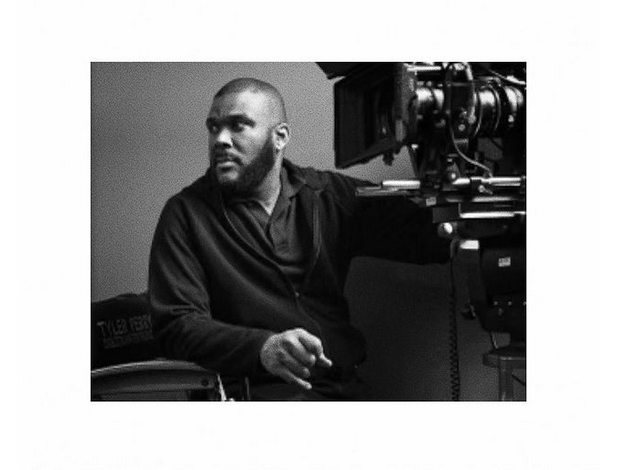Tyler Perry Halts $800M Studio Expansion Due to AI Sora’s Impact

In 2019, Tyler Perry celebrated the opening of his film studio in Atlanta with a star-studded party, showcasing the best of black Hollywood.
The studio, built on the grounds of a former Confederate army base, has been a symbol of transformation and progress.
However, Perry recently announced that his plans for expanding the studio have been put on hold due to concerns about AI technology.
Tyler Perry Studios
Tyler Perry Studios, located on 330 acres at Fort McPherson, was a dream realized by Perry in 2015. The facility boasted 12 fully furnished sound stages for movie productions, along with other structures like a replica of the White House, a diner, a mobile home park, and a prison yard.
This space has not only been a hub for film production but also a beacon of hope and empowerment for the black community in Atlanta.
In the final week of 2022, Tyler Perry made headlines again when he acquired an additional 37 acres of land for $8.4 million to expand his studio.
The expansion plans included adding 12 more sound stages, a move that would have significantly increased the studio’s capabilities and size.
However, Perry decided to halt these plans after witnessing the advancements in AI technology, particularly OpenAI’s text-to-video model Sora.
ALSO READ: Bob Marley and Rastafarianism: The Untold Story
The Impact of AI
Perry expressed his concerns about the impact of AI on the film industry, noting that the use of AI in content creation could lead to a loss of jobs.
He stated, “I have been watching AI very closely and watching the advancements very closely.
I was in the middle of, and have been planning for the last four years, about an $800 million expansion at the studio, which would’ve increased the backlot a tremendous size — we were adding 12 more soundstages.”
The Potential of AI in Filmmaking
According to Perry, AI like Sora can generate any location or set through text, eliminating the need for physical travel or set construction.
This advancement could significantly change the way films are made, offering new possibilities for creative storytelling.
Despite the potential benefits, Perry is worried about the negative impact AI could have on jobs in the industry. He fears that AI’s capabilities could lead to job losses for editors, actors, sound specialists, and transporters, among others.
Perry hopes that as AI becomes more prevalent, there will be compassion and consideration for the people whose livelihoods depend on traditional filmmaking methods.
He emphasizes the importance of advocating for the preservation of jobs in the face of technological advancement.
ALSO READ: Boxing Muhammad Ali: A Legacy of Family, Boxing, and Courage
Perry’s Journey to Success
Tyler Perry’s success story is one of perseverance and determination. Starting as a playwright, actor, and director, Perry faced challenges early in his career, including sleeping in his car at one point.
Despite these obstacles, he has built a multifaceted studio that stands as a symbol of inspiration for others.
Inspiring the Next Generation
In his 2019 BET Awards acceptance speech, Perry highlighted his commitment to inspiring and encouraging others, especially young black individuals aspiring to work in the film industry.
He emphasized the importance of representation and giving back to the community.
Honoring Legends of Black Hollywood
As part of his commitment to honoring black excellence in Hollywood, Perry named his sound studios after iconic figures such as Cicely Tyson, Sidney Poitier, and Oprah Winfrey, among others.
This gesture reflects his dedication to celebrating the achievements of black artists and filmmakers.
Conclusion
Tyler Perry’s concerns about the impact of AI on the film industry highlight the ongoing debate about the role of technology in creative fields.
While AI offers exciting possibilities for innovation, it also raises important questions about the future of work and the need for compassion and consideration for those affected by technological change.





